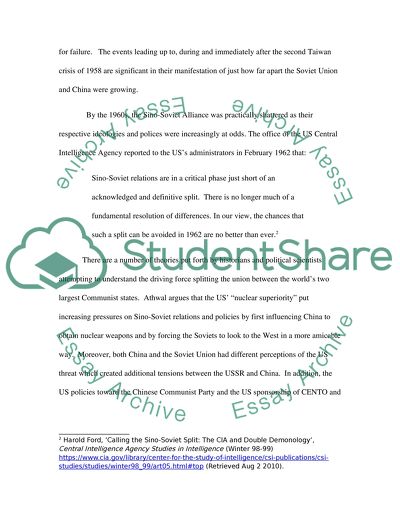Sino-Soviet Relations, 1958-1962 Research Paper - 2. https://studentshare.org/history/1569427-sino-soviet-relations-1958-1962-the-second-taiwan-strait-crisis-and-the-sino-soviet-split
Sino-Soviet Relations, 1958-1962 Research Paper - 2. https://studentshare.org/history/1569427-sino-soviet-relations-1958-1962-the-second-taiwan-strait-crisis-and-the-sino-soviet-split.


